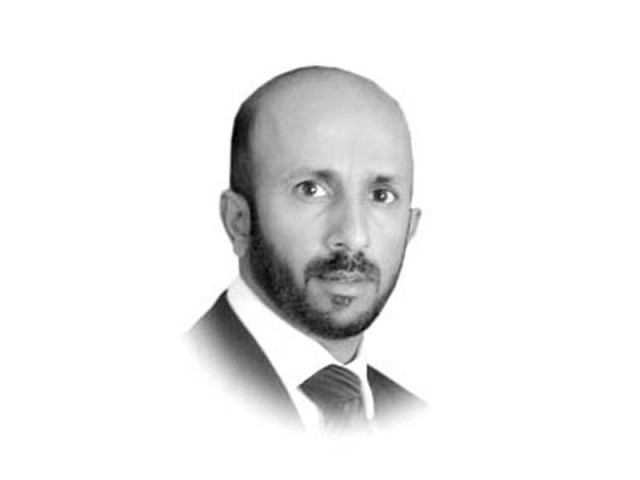Paying heed to the LHC verdict
Despite the transfer of authority to the prime minister, real power continues to reside in President Zardari’s...

Thus, the LHC verdict has ruled that: “It is expected that the President of Pakistan would… disassociate himself from political office at the earliest possible.” The verdict also held that “… it is expected that the president of Pakistan would cease the use of the premises of the presidency for the purposes and political meetings of his party”.
The expectations raised by the LHC are critically important if parliamentary democracy is to survive in Pakistan. Let us not forget, the entire parliament had to unite to dismantle the presidential form of government introduced by Pervez Musharraf through the 18th Amendment to the Constitution. President Zardari was lauded as the man who surrendered the absolute powers he inherited from a dictator president, in favour of his hand-picked prime minister.
Despite this historic transfer of authority from the presidency to the prime minister’s office after the 18th Amendment, real power continues to reside in President Zardari’s hands. The reasons for this are uncomplicated. As co-chairman of the PPP, he has absolute control over every PPP member in parliament. The consequence is devastatingly apparent from the now permanently-vacant expression on Prime Minister Gilani’s face and that of his helpless colleagues in the cabinet.
The initial reaction to the LHC verdict from the president’s closest advisers does not inspire confidence and the dilapidated Sindh card is already in play. However, this is not the time for false bravado. Any attempt to defy the court’s verdict may prove disastrous as the LHC has made significant inroads in dismantling the halo of presidential immunity. The court has held: “The participation of the President of Pakistan in… political party decisions is extraneous to the duties and functions of his high constitutional office and therefore, such participation and decisions cannot be treated as being done in the performance of his duties and functions as president and therefore immune under Article 248 of the Constitution.”
The presidential camp should take solace in the fact that despite its contumacious absence, the court has rejected the petitioner’s prayer to disqualify President Zardari. Instead, the court has taken a measured approach and sought enforcement of the well-settled principles enunciated by the Supreme Court as far back as 1993 that, “The president must keep aloof from all political imbroglio. If the president is unable to ward off the temptation to keep away from political games or he starts siding with one or the other political element in the assembly, he is likely to lose his image as the neutral arbiter in national affairs and as a symbol of unity of the federation.”
The hour for President Zardari to shed his PPP colours has come. It is time for Pakistan to regain a president who is truly a symbol of unity for the federation. The LHC verdict has shown the way. It is time for President Zardari to meet great expectations.
President Zardari’s meteoric rise as the all-powerful president of Pakistan and co-chairmanship of the PPP was made possible by Benazir Bhutto’s will. “I would like my husband, Asif Ali Zardari, to lead you in this interim period until you and he decide what is best,” were Benazir’s handwritten words. Four years is adequate for an interim period. President Zardari and the workers of the PPP must now decide what is best.
If the LHC’s expectations are met, the president may shrink in terms of political power, but his stature will rise as the much-needed symbol of unity for our country.
Published in The Express Tribune, May 19th, 2011.















COMMENTS
Comments are moderated and generally will be posted if they are on-topic and not abusive.
For more information, please see our Comments FAQ